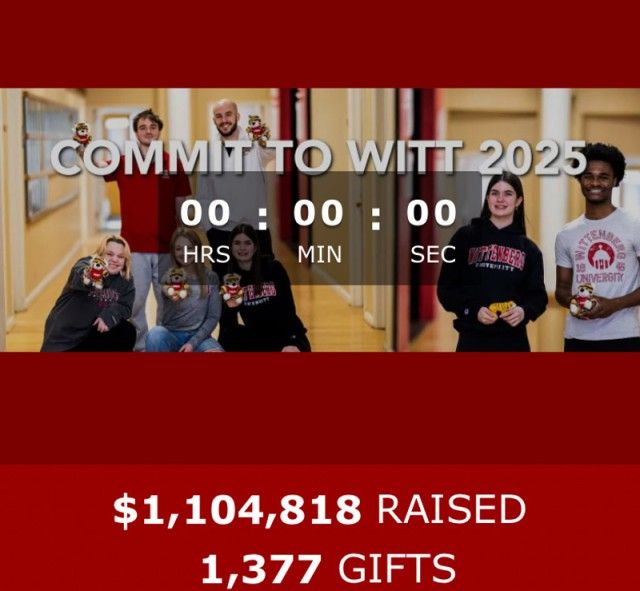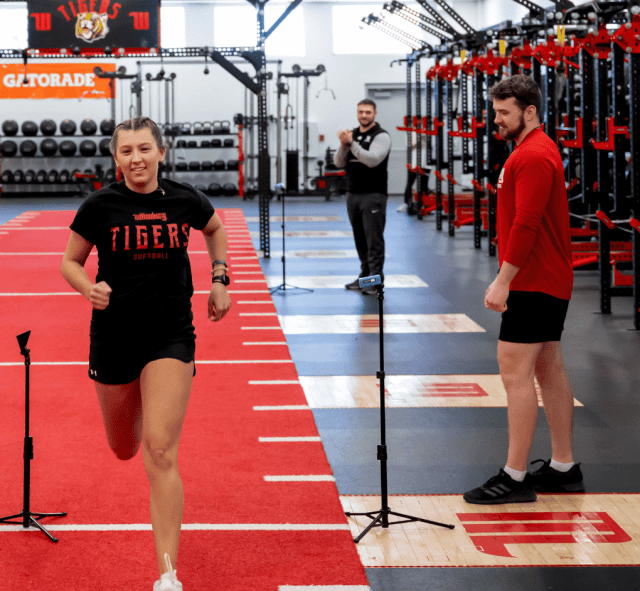Discover all the fascinating avenues for study in biology as neurology provider Anup Patel '95, M.D., and neuroscientist Emily Rogalski '01, Ph.D., discuss the latest innovations on the next Why Witt? podcast, Feb. 28. The event begins in-person at 7 p.m. in Founders, inside the lower level of Benham-Pence Student Center. The conversation will also be streamed live on the University's YouTube channel.
Patel, Wittenberg class of 1995, is a medical doctor and the Chief Medical Officer for Partners for Kids and an associate chief quality officer at Nationwide Children’s Hospital in Columbus, Ohio. Patel is board-certified in neurology with special qualifications in child neurology, epilepsy, and neurophysiology. He graduated from the Wright State University School of Medicine in 2000 and completed his pediatrics residency at the University of South Florida in 2003 and neurology at Vanderbilt University. In addition, he is a professor for neurology and pediatrics at Nationwide Children's Hospital and The Ohio State University College of Medicine. In 2019, Wittenberg honored Patel by naming him its Alumni of the Year. He was also chosen as Teacher of the Year by the Child Neurology Residency in 2012 and 2013 and is on the list of Best Doctors in America.
A member of the editorial board of Neurology Clinical Practice, Patel has publications and clinical research interests in the field of pediatric epilepsy, health care utilization, learning healthcare systems, and quality improvement. One of his biggest accomplishments has been the creation of the Comprehensive Epilepsy Center at Nationwide Children’s Hospital, a unique model for epilepsy care on a national scale, according to the Nationwide website.
Rogalski, professor of neurology at the University of Chicago and director of the university’s Healthy Aging & Alzheimer’s Research Care (HAARC) Center, graduated from Wittenberg in 2001 with a degree in biology. She went on to earn her Ph.D. in neuroscience in 2007 from Northwestern University, where she served as a professor for 15 years before joining the staff at the University of Chicago in September 2023 as the Rosalind Franklin Professor of Neurology. In her new role, Rogalski leads the HAARC Center, which seeks to serve as an aging and dementia research hub dedicated to the discovery of factors that promote resilience, resistance, and increased health span through multidisciplinary research, community engagement, education, and the development of new evidence-based interventions.
According to her bio at the University of Chicago, Rogalski has also made significant contributions in the field of Alzheimer’s and related dementia-related disorders, especially primary progressive aphasia (PPA) where language impairment is the prominent symptom. She has helped pioneer telehealth interventions for individuals affected by these disorders, offering tools to maximize their quality of life and communication. She operationalized the SuperAging phenotype, and leads studies to establish unique biologic, molecular, genetic, and psychosocial features of SuperAgers. She leads the international SuperAging Research Initiative, which holds promise for identifying protective factors for avoiding Alzheimer’s disease, optimizing health span, and reducing stigma associated with aging.
A tenured professor leading clinical and cognitive research in the academic medical setting, Rogalski also brings expertise in MRI and PET biomarkers, cognitive functioning, public speaking, mentoring, and telemedicine, along with grant and scientific writing.
The brainchild of entrepreneurs Timmy McCarthy, class of 2002 and Wittenberg’s first-ever Professional in Residence, and John “HUD” Hudson, business owner, friend, and former classmate, Why Witt? debuted in summer 2023. The program airs in front of a live studio audience once a month. Featured guests are Wittenberg alumni, who are then expected to mentor a current Wittenberg student following their participation in the program.
Why Witt? asks the following primary questions of all its guests: what led them to Wittenberg; what happened while they were here; and how did they navigate the path after leaving Wittenberg? Each show is approximately one hour – 50 minutes for conversation and 10 minutes for audience questions. A link to listen will be posted on the University's YouTube channel closer to the event time. Contact information for connecting with the Why Witt? creators can also be found on the program’s website here.







